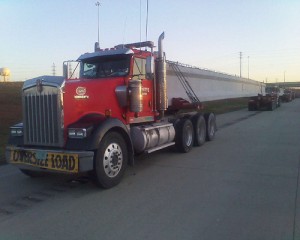Renting Industrial Space-
Do you know why you never see a real estate developer constructing an industrial park or industrial building in a downtown city area next to a movie theater or fancy restaurant? Well, one reason is the developer probably couldn’t get a building permit to start with… But also the location is horrible for what industrial space is mainly designed for, which is the storage of materials to be shipped or received.
Any realtor will tell you location is a key factor when considering the purchase of a home. The same holds true for renting industrial space or looking for a spot to build a small or large industrial warehouse. Ergo, in making a decision on industrial space, your thoughts should turn toward being close to airports, easy freeway access, and departure, and property that has reasonable railroad access, as well. Huge semi-trucks and 18 wheelers tend to eschew having to mosey through narrow streets and downtown areas where turning and parking becomes a real headache; not to mention the nasty looks they get from others driving small cars.
 What Should You Look For In Renting Industrial Space?
What Should You Look For In Renting Industrial Space?
First, these two things will be important: space size and square foot cost. Your third item will be critical: zoning! Your industrial warehouse space may not be legally useable for the purpose you need. Think chemical experiments and the like. So before you get all excited and sign any long-term lease, check with the city or county to verify zoning law restrictions. Some cities, in order to cut down on accidents and complaints, have industrial space restrictions you haven’t thought of, including hours of operation and loud noise.
What Is The Best Way To Find The Industrial Space I Need?
The answer is quite simple. New and older industrial parks and buildings are most times, without exception, located near the airport, freeways, and railroad terminals. These locations make it easy for trucks to enter and leave, eliminating much of the heavy traffic problems. In those areas, you’ll find plenty of “for lease” or “space available” signs allowing you to peek through windows, and check ingress and egress possibilities. However, you’ll find most space that’s offered requires dealing with a real estate company in order to see the industrial space interior.
A Few Questions to Ask Yourself When Renting An Industrial Space
Is this going to be a “working” space or just a “storage” area?
Are you going to have employees? Well, you’ll need toilet facilities, parking spaces, and adequate ventilation like heat and AC.
How much space will you need?
What is your budget? Landlords will charge by the square foot for renting industrial space.
Once you have the answers to these questions, then research locations for easy access in and out. (See paragraph two). Check with the property management company to find out who pays for any “tenant Improvements” you may need. Know your rights, understand the lease agreement, definitely ensure all your equipment, and have liability insurance.
See Also:
7 Ways Your Business Can Reduce Energy Costs
Why Businesses Should Retain Older Workers
Payroll Systems for Small Businesses
4 Ways Outsourcing Payroll Could Benefit Your Business
Housing Trends- Where are the Home Buyers?
Photo Credits:
by NCDOTcommunications Tractor Trailer

 What Should You Look For In Renting Industrial Space?
What Should You Look For In Renting Industrial Space?